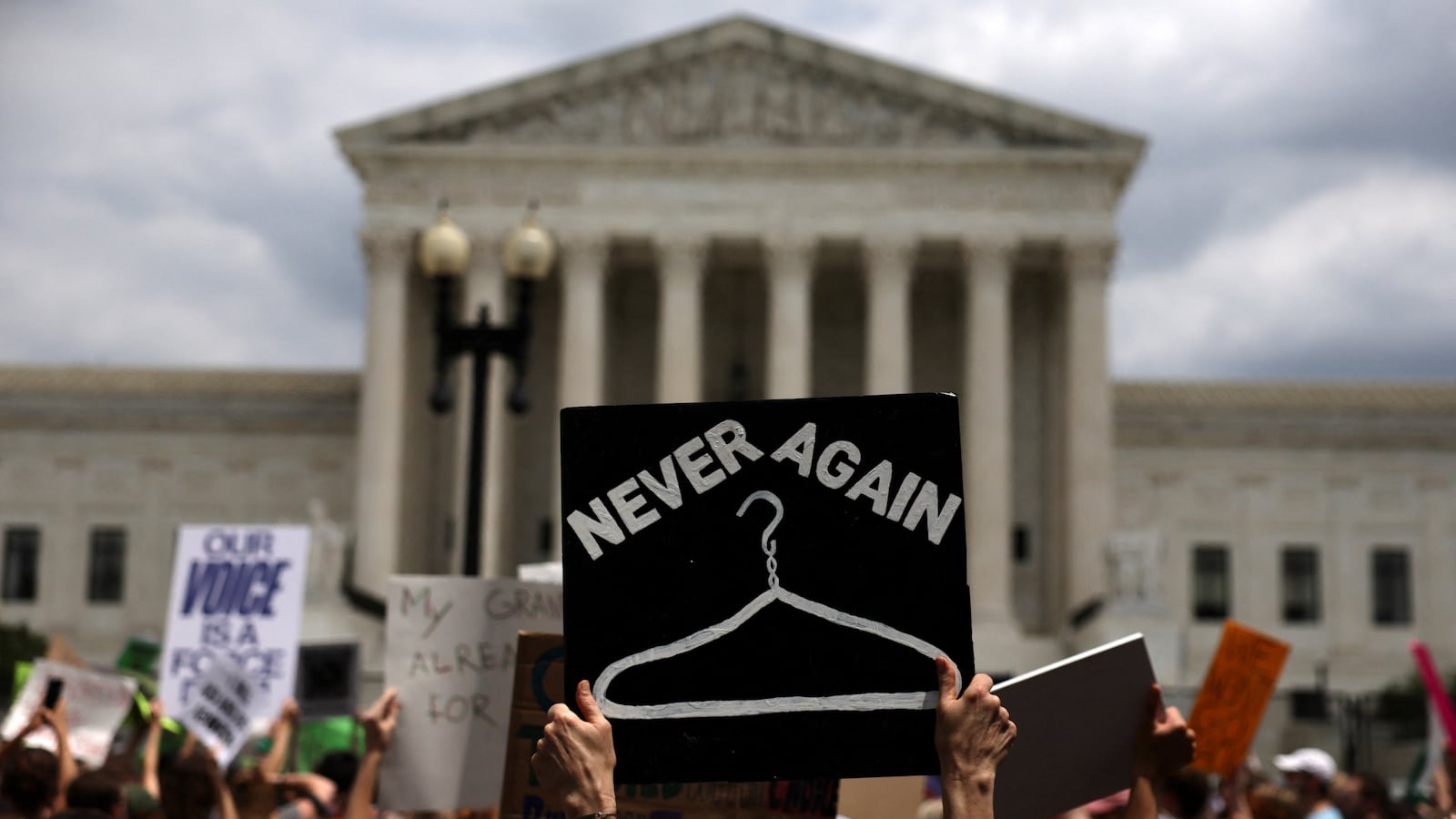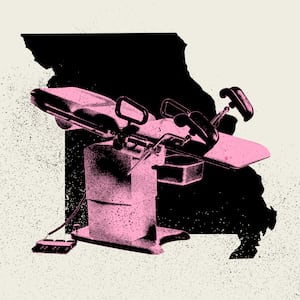Despite the Supreme Court’s negligence and legal malpractice, as evidenced by the release of the Dobbs decision that overturned Roe v. Wade, abortion is still legal in California (where I work) and just 20 other states where abortion is “likely to remain legal.” But that doesn’t mean we oasis-state abortion providers aren’t already scrambling to navigate a swirling stream of patient care chaos.
This morning, I awoke to a flood of emails from colleagues in nearby states, desperately trying to finish caring for patients already in the process of obtaining abortions. Yes, that’s right—patients who have already scheduled appointments, taken time off work, paid for childcare for their kids at home, and even planned surgeries in the operating room, are suddenly unable to proceed with that care and have nowhere to go.
The chaos, in part, looks like this: With sudden and immediately enforced trigger laws popping up all over the country today, providers, advocates, legal experts, friends, and neighbors are making last minute changes to show up in whatever way possible for the women who urgently need care. Why? Because abortion is and has always been a community issue. No one gets through an abortion without the love, support, kindness, and compassion of another person, even if it’s only the recovery nurse holding her hand afterwards. This is how it will continue to be in the hard days that follow.
Here’s an example of one such call for help today (relayed without patient identifiers and with the sender’s permission):
“We have a patient with a history of five prior cesarean sections at 21 weeks who was diagnosed with anencephaly yesterday. I can no longer do her D&E [dilation and evacuation] on Saturday. She has no resources but we have abortion funding for her that can help with travel if patient is willing/able to leave state. Can anyone who thinks they can help please direct message me or call?”
Anencephaly is a life-threatening medical condition where the skull doesn’t completely form and the fetal brain is completely exposed. Five c-sections is a risky surgical condition with increased risks of massive hemorrhage, placenta accreta, and even hysterectomy. This woman has five other children at home and has limited resources as it is. That is the type of real life situation we as a community of humans are up against right now.
Another text from a friend this morning read:
“The attorney general just signed our trigger ban. Abortion is now illegal in Missouri. We managed to take care of one more patient this morning.”
That might be the last legal abortion in Missouri ahead of an anticipated huge wave of “abortion tourism” in the coming weeks and months.
We have no idea how many people are headed our way. Best estimates from an NBC News analysis of the U.S. Census Bureau and the Guttmacher Institute—a research and policy organization that works to advance sexual and reproductive health and rights—indicate that around 300,000 women in the U.S. will be immediately impacted by this ruling. The Guttmacher Institute also estimates that there are around 32 million reproductive-age women living in the 26 states that are projected to ban abortion.
For providers like me, this means a huge restructuring to how we envision providing all women’s healthcare. While I will absolutely rise to fill this need and provide abortion care for anyone who can reach me, I will also have far less time to deliver babies, provide routine cancer screening care, do surgeries for ovarian cysts/fibroids/abnormal bleeding. All of women’s healthcare will be impacted, no matter where we live.
I have already helped people traveling from Texas to receive care, and their desperation is palpable. They feel scared, tired, anxious, and betrayed by their government officials.
Last month, I cared for a mother of two who was only 12 weeks pregnant with her third pregnancy and who had just found out about a lethal fetal anomaly. She was devastated to learn that her fetus would not survive birth, and that to safely manage that pregnancy in her home state of Texas would be illegal and impossible. When she arrived at my clinic, I also diagnosed her with placenta accreta, a life-threatening condition. We gave her excellent care and saved her life, but she was only able to access this care because she had financial and societal privileges.
Communities of color are more often trapped within cycles of poverty and, therefore, are frequently forced to delay accessing abortion services because they need time to secure the funds, arrange child care, and take time off of work. Because of these systemic barriers, they are also less able to travel out of state to get the care they need. What does white supremacy have to do with abortion care and the Supreme Court ruling handed down today? Everything.
This is where my mind and heart are today. As an Ob/Gyn doctor who provides abortion, I am scrambling in every way possible to help secure the immediate care needs of anyone I can, and pray that through organizations and resources like those listed below, they can reach me.
M+A Hotline, the miscarriage and abortion hotline can be reached by phone or text and will connect you with physicians who can provide expert advice on self-managing your miscarriage or abortion.
Plan C, up-to-date information on how people in the U.S. are accessing abortion pills online.
If/When/How’s Repro Legal Helpline provides legal information, support, and attorney referrals to people who have been questioned by the authorities, or fear they will be, for self-managing an abortion.
Dr. Jenn Conti is an internationally recognized health expert, medical journalist, and Ob/Gyn physician.








